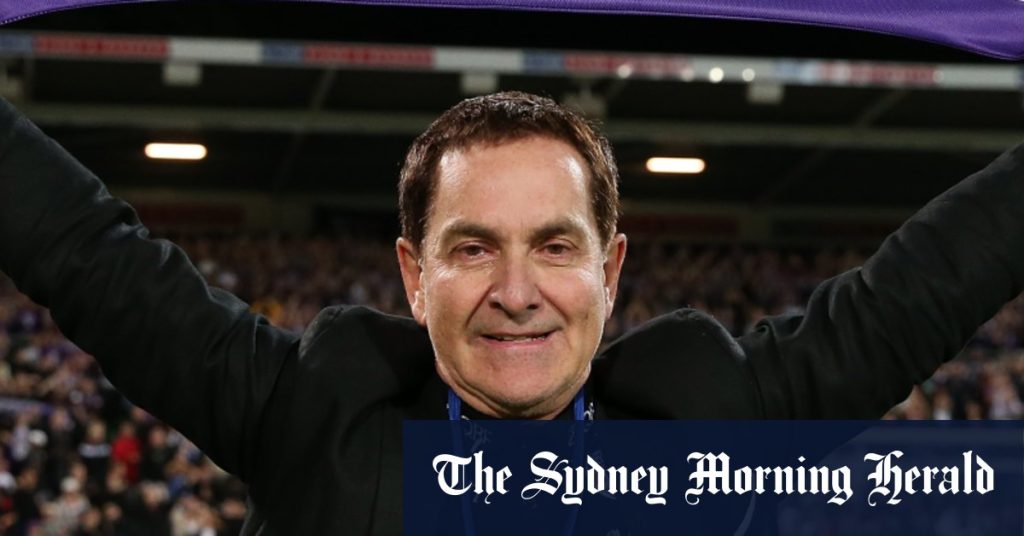Former Perth Glory shareholder Kenneth Keogh and ex-owner Tony Sage have reached a peace deal to end their seven-month-long dispute over a million-dollar stake in the club. Supreme Court justice Michael Lundberg issued orders dismissing the matter, following a settlement agreement between the two parties. The exact terms of the agreement have not been made public. The conflict began in October when Keogh’s company, Kakka Enterprises, filed a wind-up order against Sage’s company, Okewood Pty Ltd, claiming insolvency and seeking payment for a 3.3% stake. Keogh had invested over $1 million in the club and was concerned about losing his stake if the proceeds from the club’s sale did not cover its debts.
Sage had consistently denied that Okewood was insolvent and maintained that he would settle with Kakka once the sale of the club was completed. Kakka’s lawyer, Dan Butler, confirmed that both parties had worked diligently to reach a commercial resolution to end the legal proceedings, emphasizing that courts expect disputing companies to focus on reaching agreements even when litigation has already commenced. Sage stated that the agreement confirmed Okewood’s solvency, supported by a strong asset position including shares worth $2.7 million and an extensive property portfolio.
The peaceful resolution between Keogh and Sage brings an end to a contentious chapter in the Perth Glory’s history and puts to rest the legal battle over ownership stakes in the club. The settlement agreement, reached after months of dispute, signifies a mutual understanding between the former shareholders and a willingness to move forward amicably. While the precise terms of the agreement have not been disclosed, the decision from the Supreme Court to dismiss the case indicates a resolution satisfactory to both parties. This outcome demonstrates the importance of finding common ground and negotiating in good faith to resolve conflicts and disputes.
The dispute over ownership of Perth Glory highlights the complexities of managing investments in sports clubs and the potential for disagreements to arise between stakeholders. Keogh’s investment in the club and subsequent legal action to protect his stake underscore the financial risks involved in owning a share of a professional sports team. Sage’s assurance of Okewood’s solvency and commitment to settle the matter once the club’s sale was finalized reflect the challenges faced in managing financial obligations and commitments in the context of sporting ventures. The resolution of this dispute sets a precedent for shareholders and owners to work towards mutually beneficial outcomes in cases of disagreement and conflict.
The legal battle between Keogh and Sage sheds light on the importance of clear communication, transparency, and cooperation in managing investments and ownership stakes in sports clubs. The efforts made by both parties to reach a settlement and bring an end to the dispute demonstrate a commitment to resolving conflicts in a fair and equitable manner. The involvement of the courts in overseeing the resolution process underscores the significance of upholding legal frameworks and procedures in resolving disputes between stakeholders. The peaceful resolution of the conflict sets a positive example for future disputes in the realm of sports ownership, emphasizing the importance of negotiation, compromise, and collaboration in reaching mutually satisfactory outcomes.
Ultimately, the peace deal between Kenneth Keogh and Tony Sage represents a harmonious conclusion to a prolonged and contentious dispute over ownership stakes in Perth Glory. The resolution of the conflict highlights the importance of communication, cooperation, and mutual understanding in resolving disagreements between stakeholders in professional sports clubs. The settlement agreement reflects a shared commitment to moving forward in a positive and amicable manner, setting a positive example for managing disputes and conflicts in the realm of sports ownership. As the parties move past this chapter of their shared history, the lessons learned from this experience can serve as valuable insights for stakeholders in sports clubs and other investment ventures.


